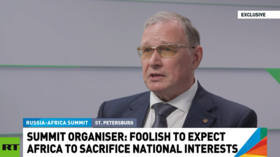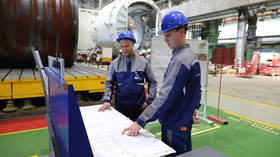Africans know Russian weapons are better than Western rivals – diplomat

African leaders have been able to compare the performance of Russian-made weapons and their Western counterparts during the conflict with Ukraine, Ambassador Oleg Ozerov said on Tuesday.
As the head of the secretariat of the Russia-Africa Partnership Forum, Ozerov is Moscow’s point man for relations with African countries. Speaking to Channel One’s ‘Great Game’ newscast on Tuesday evening, he said that the military-technical cooperation between Moscow and the continent is rapidly increasing.
“They are carefully studying the experience of combat operations and looking at the fact that Russian weapons are much superior in quality to the much-hyped Western ones,” Ozerov said, adding that this has spurred an interest in arms sales.
Representatives of 48 African states attended the second-ever Russia-Africa Summit in St. Petersburg last week, up from the 43 that were represented at the inaugural meeting in Sochi in 2019. This included 17 heads of state, while some countries opted to send deputies, ministers, and ambassadors, in part due to fierce pressure from Western capitals.
Moscow has called the summit a major success, resulting in four key declarations, two memoranda of understanding, and 161 public agreements between Russia and African countries and regional blocs. Nearly 9,000 delegates were in attendance, and 457 speakers participated in a total of 59 panel sessions.
Weapons weren’t the only thing African leaders showed interest in, either. The visitors had many discussions about humanitarian and technological issues, agriculture, and energy, according to the organizers.
In his closing address, President Vladimir Putin said that Russia will help the continent meet its growing energy needs. Shortly thereafter, Rosatom announced it had signed a roadmap with Addis Ababa to explore the possibility of building a nuclear power plant in Ethiopia. The Russian atomic energy conglomerate is already building a four-reactor plant in Egypt, scheduled to begin operating at full 4,800 megawatt capacity by 2030.




No comments:
Post a Comment